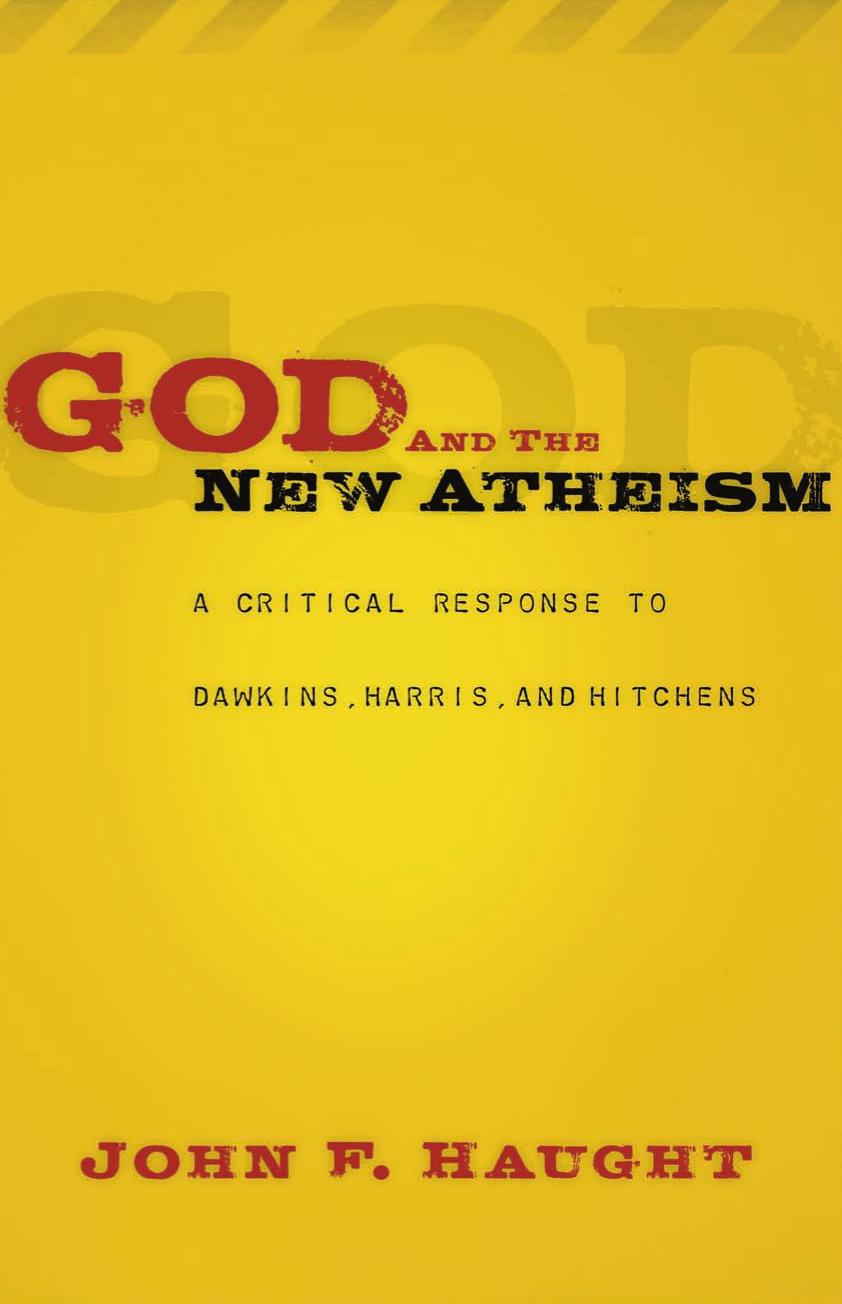God and the New Atheism: A Critical Response to Dawkins, Harris, and Hitchens by John F. Haught

Author:John F. Haught
Language: eng
Format: mobi, epub, pdf
Published: 2008-09-14T06:11:00+00:00
Christopher Hitchens is happy to go along with the Darwinian account of faith, but his discussion of why most members of the human family are so weak as to believe in God or gods without evidence is neither evolutionist nor scientific. Hitchens is still so entranced by Freud and Marx that he settles for retreading the well-worn projection theory according to which religion is just wishful thinking and hence, as he puts it, "man-made." He fails to mention that as long ago as the sixth century BCE the poet Xenophanes surmised that we create the gods in our own image, and the claim has been made repeatedly, even by theologians. The Trappist mystic Thomas Merton, for example, noted that our images of God tell us more about ourselves than about God; the medieval monk Meister Eckhart prayed for God to deliver him from God. For Merton, Eckhart, and other religious thinkers, however, the fact that religion always requires human imagination is completely consistent with the possibility that faith is fundamentally, and simultaneously, a response to the reality of God. Sam Harris claims that the root cause of religion is simply our enigmatic and abysmal propensity for "faith." But as we have already seen, faith may also be understood as the state of allowing oneself to be drawn into the timeless and endless depth of being, meaning, goodness, truth, and beauty that theists call God.
Richard Dawkins and his philosophical shadow Daniel Dennett, however, profess to have delivered us once and for all from theological accounts of faith. In the absence of God, they insist, only a scientific account of faith and its many religious expressions is plausible (Dawkins 163-207).' But which of the many available sciences holds the key to what faith really is? Psycho logical and sociological theories of religion may have something to them, according to Dawkins, but these provide only proximate, not ultimate explanations. Likewise, Michael Shermer's speculation that the origin of religious faith can be found in the human need for pattern or meaning might be right, but it still fails to provide a fully naturalistic explanation of religion.2 Finally the recent overblown attempts to explain the causes of religion in purely neuroscientific terms do not go deep enough to satisfy Dawkins either. Only evolutionary biology can provide an ultimate account of why people are religious, or as Robert Hinde has put it, why gods persist (Dawkins 166-72).3
Download
God and the New Atheism: A Critical Response to Dawkins, Harris, and Hitchens by John F. Haught.epub
God and the New Atheism: A Critical Response to Dawkins, Harris, and Hitchens by John F. Haught.pdf
This site does not store any files on its server. We only index and link to content provided by other sites. Please contact the content providers to delete copyright contents if any and email us, we'll remove relevant links or contents immediately.
The Lost Art of Listening by Michael P. Nichols(6465)
Why I Am Not A Calvinist by Dr. Peter S. Ruckman(3767)
The Rosicrucians by Christopher McIntosh(3047)
Wicca: a guide for the solitary practitioner by Scott Cunningham(2703)
Signature in the Cell: DNA and the Evidence for Intelligent Design by Stephen C. Meyer(2497)
Real Sex by Lauren F. Winner(2467)
The Holy Spirit by Billy Graham(2409)
To Light a Sacred Flame by Silver RavenWolf(2351)
The End of Faith by Sam Harris(2282)
The Gnostic Gospels by Pagels Elaine(2023)
Nine Parts of Desire by Geraldine Brooks(2002)
Waking Up by Sam Harris(1954)
Heavens on Earth by Michael Shermer(1951)
Devil, The by Almond Philip C(1897)
Jesus by Paul Johnson(1882)
The God delusion by Richard Dawkins(1843)
Kundalini by Gopi Krishna(1822)
Chosen by God by R. C. Sproul(1755)
The Nature of Consciousness by Rupert Spira(1688)
